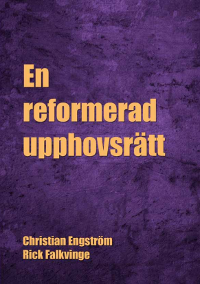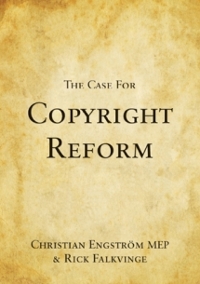
Members of the World Blind Union delegation at the WIPO negotiations on books for the visually impaired
Right now, talks are in progress at the World Intellectual Property Organization on an international treaty to address the”book famine” experienced by visually impaired people. The World Blind Union wants a binding treaty to say that when books that have been converted to accessible formats in one country, it should be legal to distribute them to visually impaired people in other countries.
The European Commission, which negotiates on behalf of the EU member states, has so far been opposed to such a treaty. The European Parliament wants a treaty, but it is the member states and the civil servants at the Commission who decide the EU position. In particular France is opposed to a treaty, so the EU negotiators are doing what they can to prevent this treaty from becoming a reality.
But it appears that there has been some progress in the talks. A consensus document has been presented that has the backing of many countries, most notably the US. This is a very positive development. James Love, director of the activist organization Knowledge Ecology International KEI, has written an analysis of the consensus document.
The negotiations are still going on this week. Let’s hope that somebody manages to knock some sense and decency into the EU governments, in particular the French, so that we finally can see a solution to this problem.
To get some feeling for what is happening at the negotiations, here is a blog post by James Love at KEI from last Thursday:
Report from SCCR 22 discussions of WIPO treaty for persons who are blind or have other disabilities
June 16, 10 am: There are good news and less good news to report from Geneva. While overall, things have moved in positive directions, with the US and the EU engaged in very constructive negotiations with Brazil and other treaty sponsors, there are still many frustrations. One is that the ”3 day” meeting time to discuss the WIPO work on disabilities has effectively been shrunk. Yesterday WIPO head Francis Gurry arranged for the SCCR to adjourn at 4:30, after only an hour of meeting in the afternoon, for a high level forum featuring the treaty’s main corporate opponents — the book publishers. This morning, at 9am, there is an ambassadors meeting, and the SCCR will again be delayed. So far, the agenda for the meeting is not decided, and we are still on opening statements. Only one NGO statement has been allowed so far — from IFFRO, one of the most bitter opponents of the treaty.The US strategy has been to engage constructively on the text of a non-paper with Brazil, the EU and others, but to attack any text dealing with privacy rights or contracts, and to try to block anything that suggests a diplomatic conference. Yesterday Justin Hughes cynically used the fact that Article 30 of the UNCRPD (http://www.un.org/disabilities/default.asp?id=150) has not been effectively implemented to imply that treaties are not needed or effective– in the same statement where he endorsed a treaty for performers, and during a week when the US is traveling to Vietnam for the TPP binding trade agreement negotiation, and while the US is trying to finalize the signing of ACTA. Hughes wants to present himself as a true friend of persons with disabilities, while he also tries to block a diplomatic conference on a treaty — without having to say publicly the USPTO opposes a treaty. Some 2.5 years in office, you would think the Obama Administration would have enough time to decide if they are for or against a treaty, publicly, but no such luck so far. With ZERO newspaper reporting on the treaty negotiations, and no activity by US Congress to support the treaty, USPTO seems to think may be able to kill it without an serious political repercussions. However, I doubt that USPTO has not considered that a treaty will move forward — there is some support within the US government to do so, any news coverage of the administration position could change the dynamics, and the disabilities community and developing countries are taking a firm position so far. My own opinion is that the treaty is actually doing quite well, and it is beginning to look like when and not if. The continued and constructive informal negotiations are an important reason for such optimism.
The EU strategy is also to block a treaty, but also to insist on provisions for ”trust” for intermediaries, in some cosmic form, not found in any EU statute that anyone has seen, based upon the EU stakeholder dialogue documents, which have not been signed or implemented, and involve voluntary agreements rather than statutory rights of access.
The European Commission pretty much has a new team at the SCCR this week, and they are taking a much more active role, despite claiming surprising ignorance of actual statutory exceptions in EU countries. As many know, Maria Martin-Pratt has replaced Tilman Lueder as the top copyright official in the European Union. Now one of two Maria’s heading major copyright posts (the other is Maria Pallante, who was just appointed Register of Copyright in the US), Martin-Pratt reminded me that we first met me at the 1996 WIPO diplomatic conference, and made a reference to a blog we wrote when her appointment was announced (http://keionline.org/node/1105).
So far, there is not much evidence that the EU will try to link progress on a treaty for disabilities to progress on a treaty for broadcasting organizations. The broadcasting treaty seems to be blocked at this time, given disputes over the nature of the rights and the extension of the treaty to the Internet.
The Africa Group wants a ”holistic” approach to limitations and exceptions, and I predict they will press for something meaningful to address their own concerns about access to knowledge and development, but so far, they seem supportive to work on disabilities as a separate stand alone measure, if there is a commitment to work on the broader access to knowledge issues. Next year, an ambassador from Zambia will chair the SCCR.
The WIPO Development Agenda Group (DAG) has seems to be a growing force in the SCCR negotiations, and I think everyone should see that as a positive development. India’s early intervention was quite strong, and Egypt played an
important role reminding Gurry that developing countries want balance in copyright, as part of the WIPO work program.The new SCCR chair is Manuel Guerra of Mexico, a very charming, accessible and able expert. He replaced Jukka Liedes, who had been the sole chair of the WIPO copyright committees since the mid 1980s. A number of delegates remembered Jukka with some affection. Coming from a Group B countries, KEI thought that Jukka was doing a good job as regards the work on disabilities and other limitations on exceptions.
China is now the vice chair of the SCCR.
For a detailed history and background on the negotiation, see: Background and update on negotiations for a WIPO copyright treaty for persons who are blind or have other disabilities.The twitter hash tag for the 22nd meeting of the WIPO Standing Committee on Copyright is #sccr22
WIPO is providing live captioning for the meeting here: http://www.streamtext.net/text.aspx?event=WIPO password: wipo4me
2011 June 15, Exceptions to copyright: White House to decide if treaty for the blind moves forward, Le Monde dipolomatique.
…………
More on the WIPO talks: IP-Watch
Previous posts:
9 November 2010: Supporting a treaty on books for the blind
13 February 2011: An amendment for books for the blind
18 February 2011: Briefing: A WIPO treaty on books for print disabled
28 February 2011: Books for the blind in JURI: Win!
17 March 2011: Books for the blind in CULT: Win!
12 May 2011: Books for the blind in the EU Parliament: Win!
26 May 2011: Question to the EU Commission on books for the blind
12 June 2011: ”Synskadade måste få tillgång till böcker”
Andra bloggar om: piratpartiet, eu, politik, informationspolitik
 Christian Engström, former Member of the European Parliament 2009-2014 for Piratpartiet, Sweden
Christian Engström, former Member of the European Parliament 2009-2014 for Piratpartiet, Sweden




This is the kind of greed I quite don’t understand. Which is the % of blind people in typical population in developed countries that the book industry is so afraid to give books away gratis, because it’s a lost profit? I guess it’s quite an insignificant proportion of the book market we are talking about. Unless, of course, they are estimating that people will start to learn reading Brail in order to get to books without paying for the intellectual property.
Kommentar av Jarda — 21 juni 2011 @ 15:49
I’m blind but fairly new to this issue.
Are the publishers’ afraid that releasing digital copies of books for the use of the blind will cannibalise book sales by the sighted?
Isn’t that what we saw from the record industry? And haven’t they got over it?
Kommentar av Anonym — 21 juni 2011 @ 21:16
When they are off the record, the book publishers admit that the issue has no economic impact for them at all. The reason they don’t sell their products in accessible formats themselves is because the number of visually impaired people is simply too small to make it economically interesting, so this is not about the money for the book publishers.
The reason they are so militantly opposed to a treaty is that they don’t want to set a precedent for changing copyright in any other direction than expanding it. Instead, they cynically choose to let the visually impaired go without books.
It’s not that the book publishers actually hate blind people, it’s just that they want to avoid any serious discussion about relaxing copyright rules for whatever purpose. The visually impaired who are denied the right to read are just collateral damage.
Kommentar av Christian Engström — 22 juni 2011 @ 9:06
sad and frustrating 😦
Kommentar av Anonym — 25 juni 2011 @ 9:50